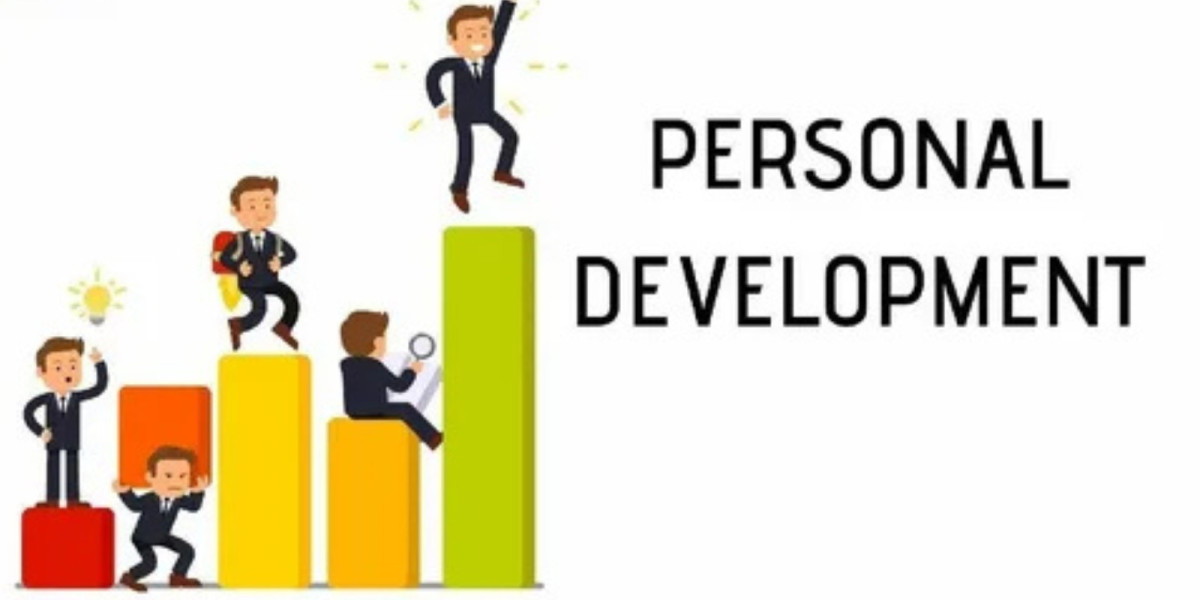Personal development is a lifelong journey of self-improvement in skills, character, and outlook. At its core, it’s about becoming the best version of yourself—unlocking potential, reaching goals, and growing personally and professionally. In this article, we’ll delve into the essence of personal development, explore its primary components, and provide actionable steps to help you achieve sustainable growth in all aspects of life.
What is Personal Development?
Personal development encompasses activities that enhance self-awareness, build identity, and improve potential. It’s not just about addressing weaknesses but also about maximizing strengths, embracing new challenges, and achieving a well-rounded sense of fulfillment. Unlike formal education, personal development is often self-directed and requires a proactive approach to self-improvement and goal setting.
Benefits of Personal Development:
Increased Self-Awareness: Personal development helps individuals understand their strengths, weaknesses, values, and motivations.
Better Quality of Life: Growth in areas such as financial literacy, time management, and interpersonal skills directly impacts overall quality of life.
Improved Mental Health: By focusing on self-improvement and setting meaningful goals, personal development can reduce stress, enhance resilience, and improve mental well-being.
Enhanced Professional Success: Building new skills and improving existing ones increases employability and career progression.
Key Areas of Personal Development
While personal development is highly individualized, it generally focuses on five main areas. Focusing on each of these areas can provide a balanced and comprehensive approach to personal growth.
Self-Awareness and Mindset
Self-awareness is understanding your personality, values, strengths, and areas for growth. Mindset, on the other hand, includes the beliefs and attitudes that shape your approach to life. Cultivating a positive, growth-oriented mindset is essential for personal development, as it fosters resilience and adaptability.
Goal Setting and Time Management
Setting clear goals provides direction, and effective time management ensures productivity. By prioritizing tasks and managing time well, individuals can achieve more in less time and maintain focus on meaningful activities.
Skill Development
Personal development often includes skill-building, both soft (like communication and teamwork) and hard (such as technical skills relevant to one’s profession). Lifelong learning keeps you adaptable and open to opportunities, whether in your career or personal life.
Emotional Intelligence (EQ)
Emotional intelligence involves understanding, managing, and expressing emotions effectively. High EQ enables better relationships, improved communication, and conflict resolution skills.
Health and Wellness
Physical health, mental wellness, and self-care are essential for personal development. A healthy lifestyle ensures the energy and focus needed to achieve personal and professional goals.
Steps to Kickstart Your Personal Development Journey
Achieving meaningful personal growth requires consistency, intentionality, and focus. Here are practical steps to get started on a successful personal development journey.
1. Reflect on Your Current State
Self-reflection is the cornerstone of personal development. Take time to evaluate where you currently stand in terms of your skills, habits, strengths, and weaknesses. Identifying these areas can help you set focused goals that are aligned with your values and aspirations.
Exercise: Try writing down your strengths, weaknesses, opportunities, and threats (SWOT analysis) to get a clearer picture of where you stand. This practice will help identify areas for improvement and recognize areas where you excel.
2. Set SMART Goals
SMART goals—Specific, Measurable, Achievable, Relevant, and Time-bound—provide a structured approach to goal-setting. Define clear goals that push you to grow without being overwhelming. Breaking large goals into smaller, manageable tasks helps keep you motivated and on track.
Example: Instead of saying, "I want to improve my public speaking skills," try "I will complete a public speaking course and practice speaking at least once a week for the next six months."
3. Develop Time Management Skills
Effective time management is crucial for achieving personal development goals. Establish a routine that prioritizes important tasks and reduces time spent on distractions. Tools like planners, to-do lists, and time-blocking can help organize your day and ensure progress on long-term goals.
Tip: Consider the "Pomodoro Technique," which involves working in focused intervals (e.g., 25 minutes) followed by short breaks. This helps maintain productivity and avoid burnout.
4. Embrace Lifelong Learning
Personal development requires continual learning and curiosity. This might involve acquiring new skills, reading books, attending workshops, or taking online courses. Lifelong learning expands your knowledge base, improves adaptability, and opens doors to new opportunities.
Example: Make it a goal to read at least one book per month or complete a new online course every quarter. This keeps you updated and actively engaged in personal growth.
5. Cultivate Emotional Intelligence
Emotional intelligence, or EQ, plays a vital role in personal and professional success. To develop EQ, practice self-awareness, empathy, and effective communication. These skills enhance relationships and improve conflict resolution abilities.
Exercise: When faced with a difficult situation, take a moment to assess your emotions and reactions. Practicing empathy and active listening can help manage interactions and build better connections with others.
6. Focus on Health and Wellness
Personal development encompasses physical, mental, and emotional health. A balanced lifestyle that includes regular exercise, a nutritious diet, and adequate sleep provides the energy and resilience needed for personal growth. Mental health practices such as meditation and mindfulness can improve focus and reduce stress.
Tip: Start by making small changes, like incorporating 10 minutes of meditation daily or setting a regular sleep schedule. Over time, these habits contribute to a stronger foundation for personal growth.
7. Build Positive Habits and Routines
Daily habits contribute significantly to long-term growth. By creating routines that support your goals, you can make steady progress over time. Identify habits that align with your personal development objectives, such as journaling, practicing gratitude, or setting aside time for skill-building.
Example: If your goal is to improve writing skills, start by writing for 15 minutes daily. Small, consistent habits are easier to maintain and compound into significant progress over time.
8. Surround Yourself with Positive Influences
The people around you can greatly influence your personal growth. Positive, motivated individuals encourage growth, while negative influences may hinder progress. Seek mentors, join supportive communities, and engage with people who share similar goals and aspirations.
Example: Join online groups, attend networking events, or find a mentor who can guide and motivate you on your journey.








